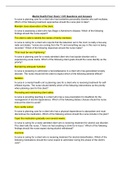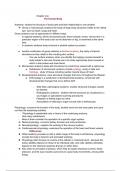College aantekeningen
College aantekeningen Contemporary Political Philosophy (6442DCPP)
Dit zijn mijn complete aantekeningen van de colleges van het vak Contemporary Political Philosophy (CPP) gegeven in het tweede jaar van IRO. Als er iets staat over het tentamen gaat dit over het tentamen in maart 2021
[Meer zien]













